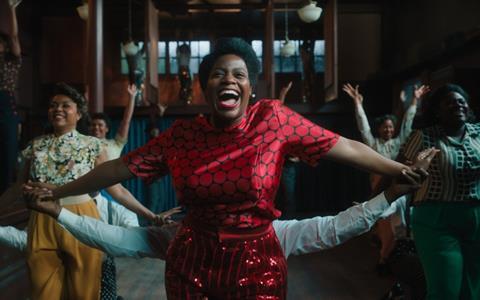Even in turbulent times, we serve a God of great hope, says Chine McDonald, as she reflects on what The Colour Purple taught her this Easter season

A few weeks ago, I sat in the darkness of the cinema and wept. I was watching the new film adaptation of Alice Walker’s classic book The Color Purple (Orion). It is a story of relentless suffering: sexual abuse, domestic violence, generational trauma and the injustice and cruelty of racism. It felt like being hit by wave after wave of trauma. I wondered: How it can be possible that a human being could survive such suffering?
Yet, what made me weep was the hope. The beautiful defiance of clinging to a creator, despite the desperate situations in which Celie found herself. She continued to believe in a God of love, despite the world having served her up a lifetime of hate.
It reminded me of the stories of enslaved people who would gather under the trees in hush harbours to read the Bible and worship God away from the eyes of their white slave owners. In these hopeful gathered places, some of the best-known Negro spirituals were created. Rooted in biblical stories, enslaved people would sing of God’s triumph over oppression and the power of the gospel to liberate people from the chains in which they found themselves.
The film made me realise how much I have been avoiding bearing witness to the suffering of others in recent months. I have found myself eschewing the news, skipping over headlines that hint at suffering and instead comforting myself with the superficiality of reality TV. Directing my rage towards the misdemeanours of contestants seems more bearable than facing the current injustice and pain in the world. I fear that, should I really look the suffering in the face, I might not be able to pick myself up again. Avoiding news about Gaza, Ukraine, natural disasters or the unimaginable cruelty inflicted on innocent children by those who were supposed to care for them is, perhaps, an attempt to guard my heart from the pain.
The resurrection followed the darkness, pain and suffering of the crucifixion
As I watched The Color Purple and saw the characters choose hope despite their suffering, I felt a touch of shame. To look away from others’ pain is to surrender to hopelessness. When we bear witness to it, we can let ourselves feel the injustice, recognising that this is not how things are supposed to be.
I’ve often heard Christians say that we should be ‘Easter people’, living in the light of the resurrection. But this year I’m reminding myself that the resurrection followed the darkness, pain and suffering of the crucifixion. Choosing hope in this context speaks to the profound and transcendent beauty of the God who does not look away but, instead, suffers with us.
In these turbulent times, I return to the words of Black liberation theologian James Cones in The Cross and the Lynching Tree (Orbis Books): “The gospel of Jesus is…a story about God’s presence in Jesus’ solidarity with the oppressed, which led to his death on the cross. What is redemptive is the faith that God snatches victory out of defeat, life out of death, and hope out of despair.”


































No comments yet